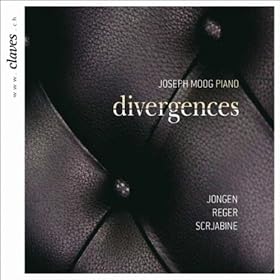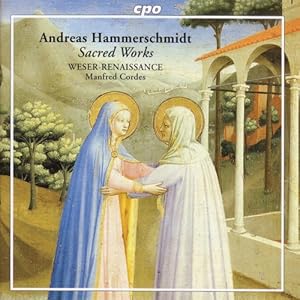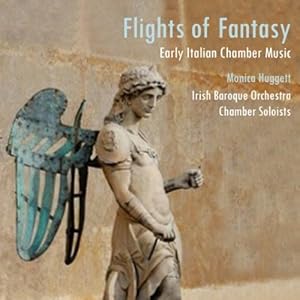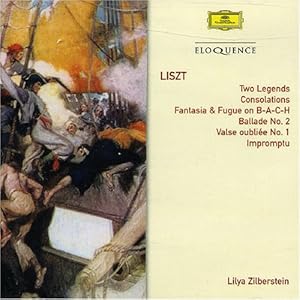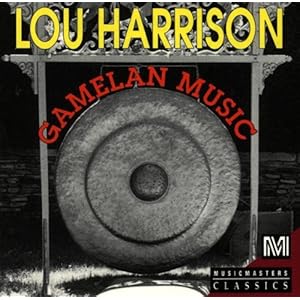I see that four months have passed since the last "installment" of this series, and it was four months before that that I actually listened to the music under discussion here.
We're talking about Mahler's song cycle Lieder eines fahrenden Gesellen - Songs of a Wayfarer. Or Songs of a Wayfaring Lad as some translations have it. Or indeed, Songs of a Driving Associate according to Babel Fish. This was his first proper song cycle. He wrote it with piano accompaniment around 1885 and orchestrated it nearly a decade later, but in fact he always had it in mind as an orchestral work. There are 4 songs, and I suppose you could call it a rather compact Winterreise.
The first song - they all have Mahler's words, by the way - is "Wenn mein Schatz Hochzeit macht" ("When my love becomes a bride"), and it immediately sets a dark tone. It has a folksy feel to it, as does much of the cycle. Here the singer's contemplating his loved one's wedding day - not to him, obviously - and although he seems to find consolation in nature things don't work out that way: "spring is dead and gone./Singing's done for ever now".
By the second song, though, he's cheered up a bit: "Ging heut' Morgen übers Feld" he sings, describing the lovely things he saw on his morning jaunt in the countryside - which lasts almost all the way through the song before he realises that his life is still, at bottom, miserable.
"Ich hab' ein glühend Messer" is full of rage and despair, with plenty of "O weh!"s as he sings of the pain and torture he's being put through. It culminates in the singer wishing he were dead.
And does he get his wish? Perhaps. The final song, "Die zwei blauen Augen", sees him appear to pull himself together somewhat, as he leaves town in the dead of night. By and by he finds a linden tree, so beloved of Romantic poets, under which he lies down and... well, it really depends on who you listen to. Perhaps he has embraced death, or maybe it's just that, alone in the great world, he has finally found peace. Either one is possible, and it's fascinating hearing how subtle differences in performance can push it one way or the other.
I decided to start my listening with recordings of the piano version - this was the original version but the orchestral version from the early 1890s is seen as the "definitive" one.
Christian Gerhaher, Gerold Huber (RCA). Hey, this recently won a Nereffid's Guide Award! I was very pleased with that, as it's an excellent album, and Gerhaher's voice is a wonderful thing. I suppose this is a slightly low-key performance, certainly compared to others. In "Ging heut", for instance, he's cheerful rather than exuberant, and then towards the dark end of the song he hangs on to optimism for as long as he can, and there's a sense of sad acceptance in his realisation that happiness won't be coming his way. The third song's opening feels oddly like one of Schubert's "riding" songs - lovely clear piano from Gerold Huber - rather than a personal apocalypse. If this all seems like the performance isn't quite up to scratch, I should be clear that it very much is up to scratch, as it's full of character. The final song promises something valedictory as it opens, and as the wayfarer approaches the linden tree there's a touch of optimism, and the song ends in peace - and yet there's something unsettling about the final piano notes.
Janet Baker, Geoffrey Parsons (Hyperion). There's a tragic quality to Janet Baker's voice right from the start; though the second verse of the first song can have some cheer to it, here she sings plaintively, and there's a weary sadness through the whole thing. This sort of tone doesn't suit the second song, though, I think, and it feels rather undercharacterized. I like the third song, though, and the fourth does have character - but unlike Gerhaher, Baker seems to have given up. This one ends like a lullaby, but again that piano coda throws a spanner in the works - it gives the story an unfinished feel. I'll have more to say about Janet Baker later on.
Christoph Prégardien, Michael Gees (Hänssler). Having had a baritone and mezzo, we now turn to a tenor, which is not usual but isn't something that bothers me. It's possible that Prégardien and Gees's performance would bother some people; right from the start there seems to be a little messing with tempos and rhythms. Perhaps more worrisome might be Prégardien's style in the opening number - I wouldn't quite call it "detached" but he doesn't seem to be living the words. And the second song also appears mannered, as if he's reciting poetry about nature rather than actually being out in it - a touch of the drawing room to the whole thing. Yet I found the clarity of his voice rather made up for this apparent lack of engagement. Ah, but then... the final lines of this song seem to mark a major change, and the emotional level rises immensely - most certainly when they launch into "Ich hab'ein glühend Messer". Perhaps Prégardien did fail to be engaged in the first couple of songs, but it seems to me that the lack of engagement is deliberate. Here's a man who, as the cycle begins, simply doesn't realise what he's in for. Not quite Eugene Onegin, perhaps, but he comes across in the first song as someone who's quite prepared to get over this romantic setback. Song two, it's "See? For example, I can now go and appreciate Nature" - but suddenly everything hits him in the gut, and he's not OK. Song three is his explosion of pain, and song four - well, song four is where he finds a way out. He gathers his dignity but he's no longer the same person. He takes his leave, almost like a soldier (and indeed Gees's accompaniment is rather reminiscent of other of Mahler's songs that have a military component). The singer has embraced his fate, and at the linden tree he finds great peace. But there's a slightly more intense pulse to this than we've heard in the other performance, like he's being dragged willingly forward to his end. Here, the final piano notes sound like a memory. I really like this recording.
Angelika Kirchschlager, Helmut Deutsch (Quinton). Of the four voice-and-piano recordings here, this is by a long way the most beautiful to listen to, as Kirchschlager has a lovely clear voice that really rings out. On eMusic, from which I downloaded this, someone has reviewed the album saying "these songs were created by Mahler and Angelika's singing morphs them into the perfect Lieder", and actually I think that praise highlights something that's unfortunately not quite right about the performance, to my ears at least. In a way, these four songs aren't lieder - the cycle is rather more than the sum of its parts, but my impression of Kirchschlager's performance is that these are, indeed four individual lieder. It doesn't feel like a journey, basically. Everything is pretty much in its right place, but to my mind a lot of it needs a little tweak - darker, usually but not always - if the whole thing is to hang together. I suppose the problem is that it sounds so lovely, but there are moments when less loveliness is required. For all that, though, I do like it. I mean, it is so lovely! But for something more, I must stick with Gerhaher and Prégardien. And... but let's wait for another day before we get to the orchestral versions.
 A brief "Yay!" that my copy of Chandos's 19-disc Grainger Edition finally arrived in the post. Initially out of stock at Amazon, then it took a silly amount of time to get here. So I missed the 50th anniversary of the composer's death, last Sunday.
A brief "Yay!" that my copy of Chandos's 19-disc Grainger Edition finally arrived in the post. Initially out of stock at Amazon, then it took a silly amount of time to get here. So I missed the 50th anniversary of the composer's death, last Sunday.